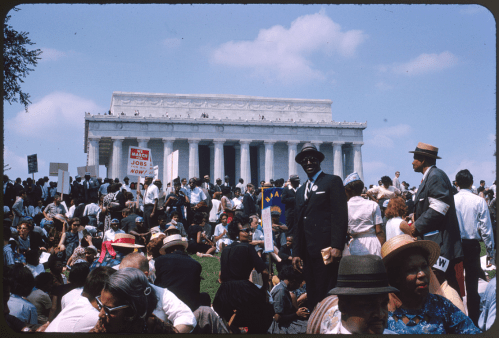George Bush’s decision to create a Foreign Terrorist Tracking Task Force shows how much the debate over immigration policy has changed since Sept. 11. Two months ago, the president was leading the charge to make it easier for foreign citizens to enter the United States. Now he is looking for ways to tighten the rules on who enters the country.
Bush’s desire to revise immigration law to keep out terrorists, and to locate them if they are already here, is both laudable and proper. The federal government has a fundamental right to control America’s border and an equally fundamental obligation to protect American citizens. Unfortunately, fashioning a coherent and effective set of border control policies will be difficult to do.
The reason is simple: We as a country want our border control policies to accomplish a mishmash of conflicting objectives. We want to encourage international visitors, catch illegal immigrants, welcome refugees from foreign wars, stop the flow of illegal drugs, facilitate international trade, keep out terrorists, and embrace people seeking to become Americans. These objectives sit uncomfortably together, and we cannot abandon any of them without giving up on who we are.
Instead, we will begin a vigorous debate about where to strike the proper balance among these conflicting objectives. Already that debate is breaking down along well-worn political lines: between pro-and anti-immigrant advocates, between the ACLU and the law-and-order folks, between House Democrats and Republicans. But while a vigorous debate about how to rewrite border control policies is important, everyone should keep a few basic principles in mind:
Do not blame illegal immigrants for Sept 11. Americans may want to take steps to reduce illegal immigration, but they should not do so under the guise of fighting terrorism. Illegal immigration had nothing to do with the terrorist attacks in Washington and New York. Sixteen of the 19 hijackers were in the country legally.
President Bush, to his credit, recognizes that the vast majority of people who enter the United States illegally are simply looking to improve their lives, not to kill Americans. He is right that we can make it harder on terrorists and still develop policies that would help thousands of undocumented families regularize their status in the United States.
There is room to tighten legal immigration. Sept. 11 revealed a long-standing problem in U.S. immigration policy—once foreign visitors arrive in the United States the government rarely knows whether they are complying with the terms of their visas. At least two of the Sept. 11 terrorists overstayed their visas. Another obtained a student visa to attend a Berlitz language course in California but never showed up for class.
At a minimum, Washington should develop a mechanism to track whether foreign citizens who obtain student visas actually enroll and stay in class. Colleges have objected to student tracking in the past, largely for cost reasons. It hardly seems too much, however, to ask those who come here on student visas to in fact be students.
Strong consideration also should be given to adopting stiffer identification requirements for those receiving visas, say by recording their fingerprints. This could reduce the chances of passport fraud.
Better coordination and information sharing are crucial. The list of federal agencies with a role to play in monitoring America’s borders is long: the Customs Service, the Border Patrol, the Immigration and Naturalization Service, the Coast Guard, and the departments of Justice and State, to name just a few. This alphabet soup of agencies makes it essential to develop real-time information sharing across the federal government.
The place to start is to make sure that the State Department and the Immigration and Naturalization Service have immediate electronic access to the CIA and FBI watch lists of potential terrorists.
We also need better coordination and information sharing with Canada and Mexico. We cannot simply seal our northern and southern borders, so it is imperative to work more closely with our neighbors to identify potential terrorists who may be using their countries as a gateway to ours.
In the end, we can never make America’s borders inviolable. But with some clear thinking we can make it harder for terrorists to operate here. And we can do so without scapegoating immigrants or abandoning the freedoms worthy of a democratic nation.


Commentary
Op-edThe Post-Sept. 11 Debate Over Immigration Policy
November 8, 2001